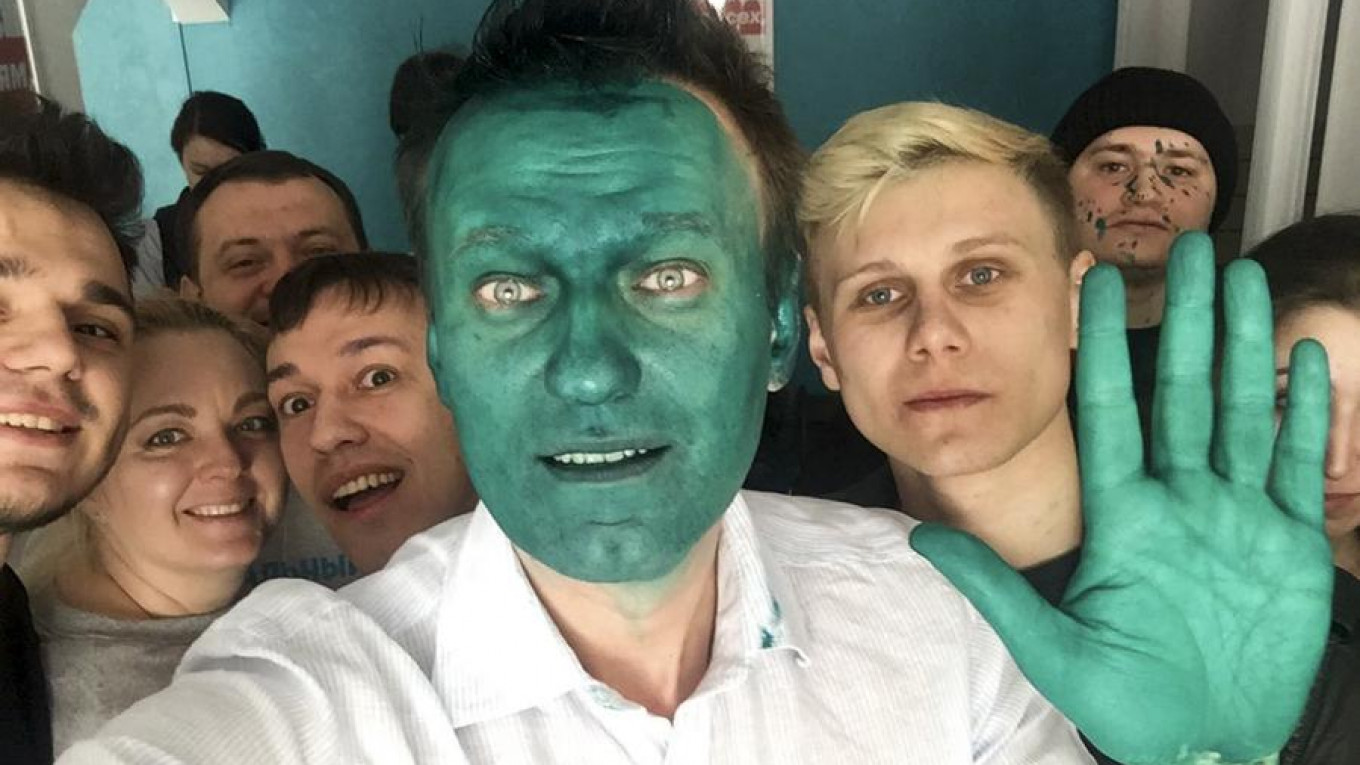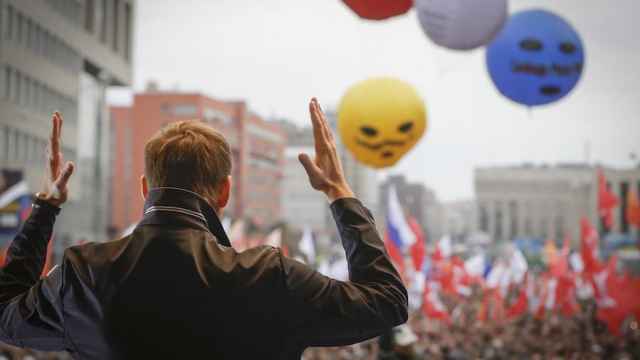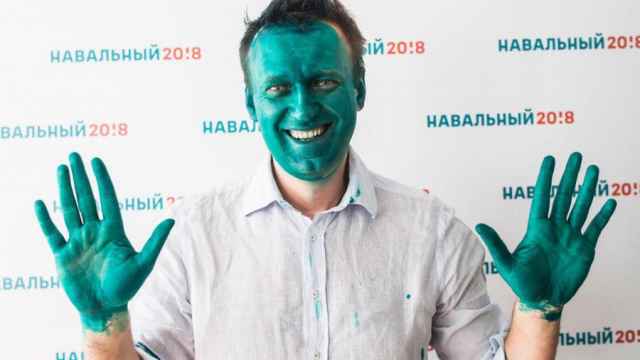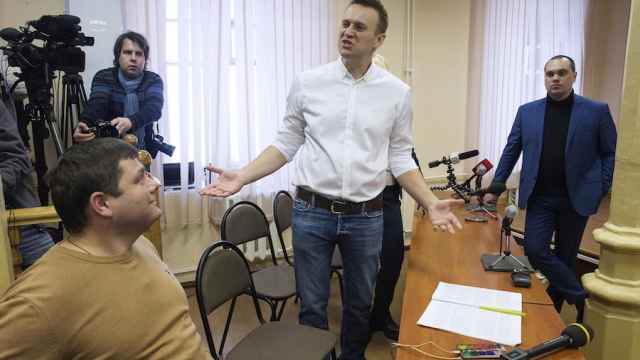The cost of attacking a political opponent in Russia is about 60 rubles, or one dollar—That’s the price of Brilliant Green or zelyonka in pharmacies across the country.
Since Soviet times, the antiseptic has been the go-to treatment for everyday cuts and chicken pox. But under Russian President Vladimir Putin, it has taken on another function—the branding of political opponents.
During a visit to Barnaul in southern Russia this week, opposition activist Alexei Navalny was doused with the dye by an unknown assailant. A month earlier, zelyonka was splashed onto former prime minister Mikhail Kasyanov at a commemorative march for slain opposition politician Boris Nemtsov.
Members of the Pussy Riot punk band and human rights defenders Igor Kalyapin and Lyudmila Ulitskaya are among just a few of those branded with zelyonka in recent years. The dye’s use has even spilled into neighboring Ukraine where it is used for similar politically motivated attacks.
A veteran activist, Navalny has been harassed countless times. In the past year alone, he has been physically attacked by Cossacks, had a cake thrown at him outside his office in Novosibirsk, and been pelted with eggs in at least five cities on his presidential campaign trail.
Leonid Volkov, Navalny’s campaign manager, says the attacks are a premeditated strategy to divert the media’s attention from the politician’s vision for the county. The reports simply focus on scandal. “It becomes unimportant what Navalny spoke about,” he wrote on Facebook. “What matters for clicks is that he was ‘pelted with eggs.’”
For the Kremlin, Navalny is an unwelcome guest on Russia’s political scene. He was recently re-convicted for fraud, which will effectively bar him from running in next year’s presidential election. But he is continuing his campaign regardless: last month his organization published a corruption investigation into Prime Minister Dmitry Medvedev and the politician is planning mass rallies later this month.
Unlike in the prominent killings of Nemtsov or journalist Anna Politkovskaya, the use of zelyonka is meant to demoralize, rather than deter, says analyst Dmitry Oreshkin. In his view, the dye belongs to a psychologically focussed style of petty attacks that emerged during Putin’s second term.
It is unlikely that these attacks are centrally organized, says political scientist Stanislav Belkovsky. “There are decisions the Kremlin takes directly and those it doesn’t forbid others from taking,” he says. “Attacks such as these are decided at a regional level.”
Brilliant Green has the added advantage of stigmatizing its victims. It is notoriously difficult to wash off, guaranteeing targets will bear the mark of the “enemy” for several days at least. “It serves to humiliate the victim and discredit the person in the eyes of voters as weak and defenseless,” says Oreshkin.
But by now, Oreshkin argues, its intended effect has faded. In fact, the opposition itself have started wearing green as a badge of honor. After Navalny was attacked in Barnaul, dozens of his supporters posted pictures of themselves in green online. When Kasyanov was attacked at the Nemtsov march, defiant demonstrators began chanting: “You won’t pour zelyonka over us!”
A Message from The Moscow Times:
Dear readers,
We are facing unprecedented challenges. Russia's Prosecutor General's Office has designated The Moscow Times as an "undesirable" organization, criminalizing our work and putting our staff at risk of prosecution. This follows our earlier unjust labeling as a "foreign agent."
These actions are direct attempts to silence independent journalism in Russia. The authorities claim our work "discredits the decisions of the Russian leadership." We see things differently: we strive to provide accurate, unbiased reporting on Russia.
We, the journalists of The Moscow Times, refuse to be silenced. But to continue our work, we need your help.
Your support, no matter how small, makes a world of difference. If you can, please support us monthly starting from just $2. It's quick to set up, and every contribution makes a significant impact.
By supporting The Moscow Times, you're defending open, independent journalism in the face of repression. Thank you for standing with us.
Remind me later.






